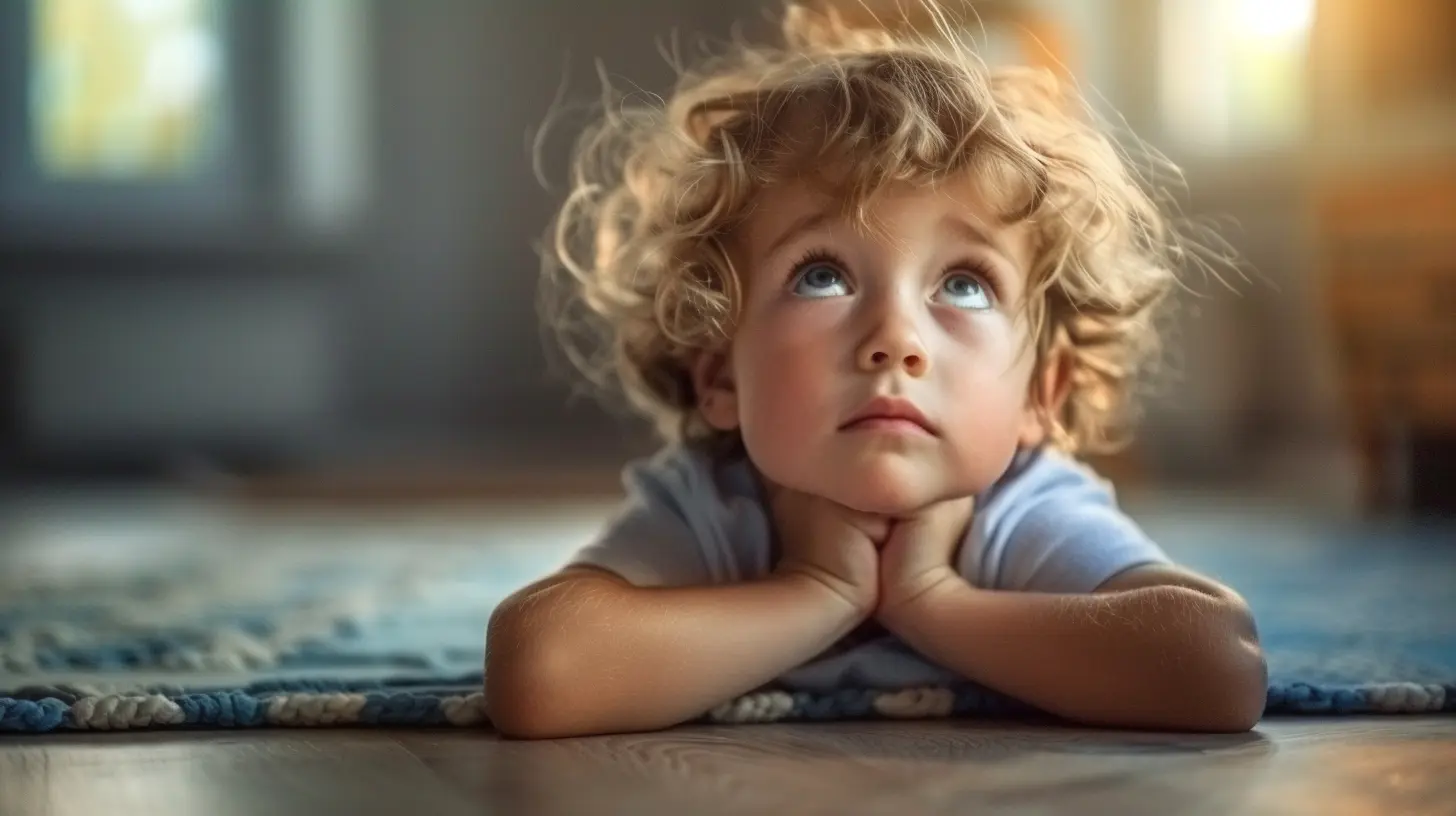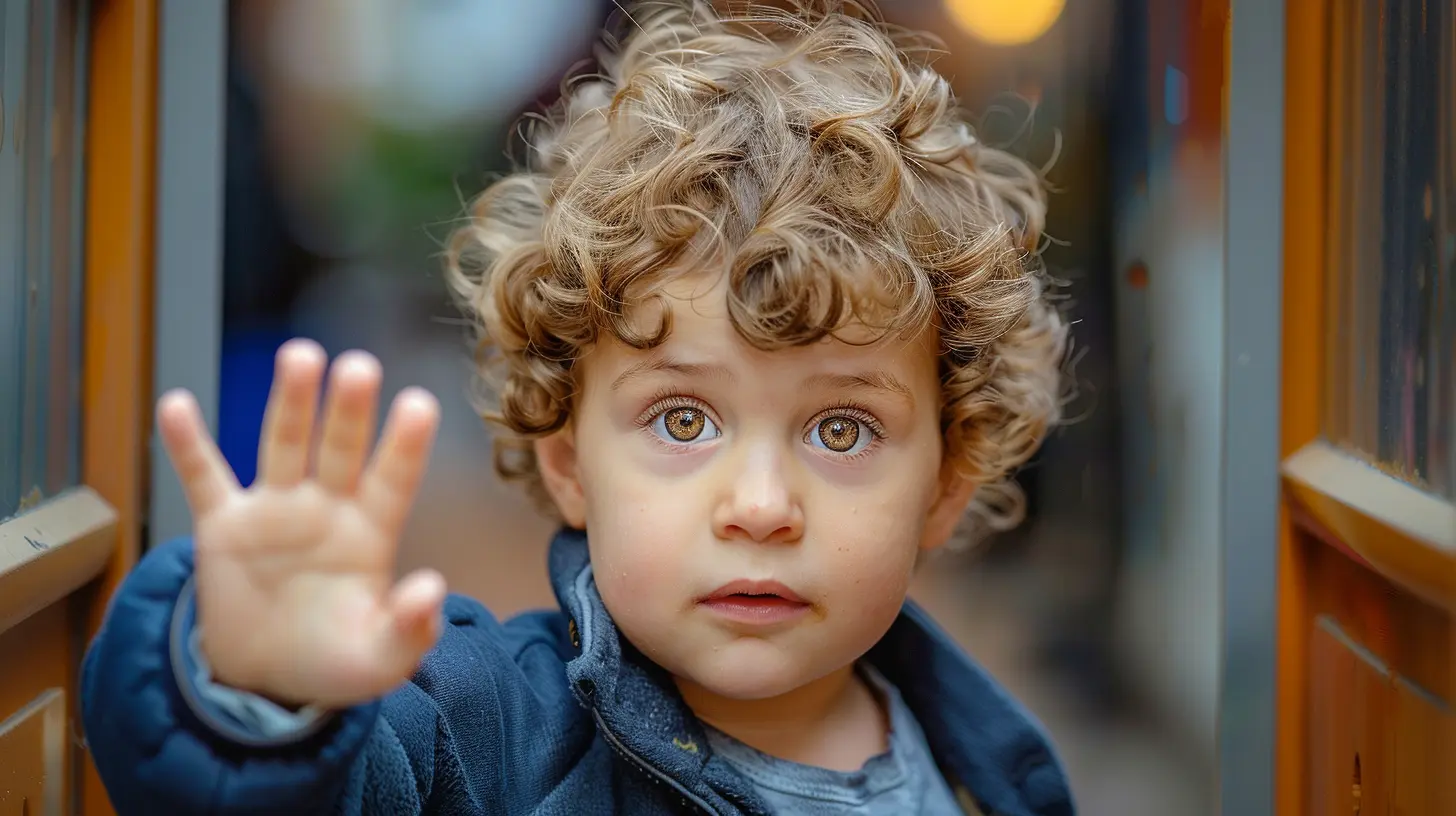21 March 2025
Let’s be real—parenting is a roller coaster. One moment, you’re cheering on your little one’s first steps, and the next, you're untangling yourself from their vice-like grip because you dared to step out of sight. Separation anxiety can be tough—for both toddlers and parents. But hang tight, because with the right strategies, you can tackle this phase like an absolute pro.
In this article, I’ll break down why separation anxiety happens, share actionable tips to make it easier for your toddler (and you!), and help you navigate this emotional ride without losing your sanity.
What Is Toddler Separation Anxiety?
Separation anxiety is completely normal and super common in toddlers. It’s that heart-wrenching stage when your little one clings to you for dear life every time you leave the room—or even hint that you might walk out the door. Basically, your kiddo is learning the concept of "object permanence," which means they now understand you exist even when they can’t see you. Sounds great, right? Well, except now they hate the idea of you being out of sight.Typically, separation anxiety starts around 8 months, peaks between 10-18 months, and can resurface again during the toddler years (because parenting isn’t hard enough already). But don't worry—it’s all part of their emotional and social development. It’s their way of saying, "You're my safe space, and I’m not ready to let go yet." Cute, but exhausting, I know.
Why Does Separation Anxiety Happen?
If you’ve ever asked, “Why is my toddler like this?” you’re not alone. Here’s the lowdown:1. Attachment to You: Your toddler sees you as their superhero, protector, and snack dispenser (not necessarily in that order). Leaving their favorite person? Yeah, that’s a big deal.
2. Developmental Changes: As their brains develop, toddlers start to recognize patterns, faces, and routines. They know you’re leaving and may not fully trust that you’ll come back.
3. Fear of the Unknown: Going to daycare or being left with a babysitter feels like stepping onto a different planet. New people, sounds, and smells can overwhelm your little one.
4. Big Emotions, Tiny Words: Toddlers don't have the vocabulary to say, "Hey Mom, I’m feeling insecure today." So instead, they cry, cling, or throw a tantrum to express themselves.
Signs Your Toddler Is Dealing with Separation Anxiety
Sometimes, it’s glaringly obvious (cue the tears and screams), but separation anxiety isn't always dramatic. Here are the telltale signs:- Clinginess (like a koala bear hanging onto a tree)
- Crying when you leave the room
- Trouble sleeping alone
- Reluctance to go to daycare or spend time with other caregivers
- Meltdowns at drop-offs
- Following you around like your shadow at home (even to the bathroom)
Sound familiar? Yup, separation anxiety is real. But don’t worry—it’s temporary, and there are strategies to help both you and your toddler cope.
How to Manage Toddler Separation Anxiety Like a Pro
Now that we know what we’re dealing with, let’s put some tools in your parenting toolbox. These strategies can ease the transition and build your toddler's confidence.1. Practice Short Separations
Start small! Leave the room for five minutes, then gradually increase the time. For example, you can set up some toys or books for your toddler to play with while you “go get something from the kitchen.” These mini practice sessions help them get used to the idea that you’ll always come back.2. Create a Goodbye Ritual
Toddlers thrive on routines—they’re like human sponges soaking up predictability. Create a special “goodbye” ritual, whether it’s a secret handshake, a hug, or a silly wave. Knowing what to expect can make goodbyes less scary and, dare I say it, even fun.3. Be Consistent
Consistency is your best friend here. If you’re dropping them off at daycare or leaving with a babysitter, stick to the same routine every time. Predictability helps your toddler feel secure because they’ll know what’s coming next.4. Don’t Sneak Out
I know it’s tempting to tiptoe out of the room like a ninja, but sneaking away can break your toddler’s trust. Instead, give them a warm hug, say goodbye, and let them know you’ll be back. It might lead to some tears, but they’ll learn you’re always true to your word.5. Help Them Build Independence
Encourage your toddler to play or explore on their own, even when you're nearby. For example, set up an activity station and praise them when they’re engaged without needing constant attention. Building their independence helps them feel more secure when you’re apart.6. Introduce New Caregivers Gradually
If your toddler will be spending time with a babysitter, nanny, or relative, ease them into it. Start with brief visits while you’re still around, then gradually increase the time as they get more comfortable. This slow introduction can ease their anxiety.7. Validate Their Feelings
When your toddler is clinging to your leg like it’s a lifeline, acknowledge their emotions. Say things like, “I know you’re feeling sad because I’m leaving, but I’ll be back soon.” Validating their feelings shows them it’s okay to feel upset, and you’re there to support them.8. Offer a Comfort Item
Sometimes, a little piece of “home” can go a long way. Give your toddler something comforting to hold onto, like a favorite stuffed animal, blanket, or even a piece of your clothing with your scent. It’s like carrying a piece of you with them.9. Keep Goodbyes Short and Sweet
Drawing out goodbyes only makes things harder for both of you. Keep it short, positive, and confident. “Bye, sweetheart! Mommy loves you, and I’ll see you after lunch!” Then leave with a smile (no matter how much they cry—it’s tough, but you’ve got this!).10. Reunite with Enthusiasm
When you return, make sure your reunion is cheerful and reassuring. Say something like, “See? Mommy always comes back!” This reinforces the idea that separations are temporary, and you’re reliable.The Importance of Staying Calm and Confident
Your toddler is a tiny emotional sponge—they can pick up on your vibes real quick. If you’re nervous or hesitant, they’ll sense it and feel even more anxious. Instead, channel your inner cool-parent energy (even if you’re faking it). When your toddler sees that you’re calm and confident, they’ll feel more reassured.And let’s not forget about you. Separation anxiety can be emotionally draining for parents too. Take a deep breath, remind yourself that this is a phase, and cut yourself some slack. You’re doing an amazing job.
When Is It Time to Worry?
In most cases, separation anxiety is a normal part of development. But if it’s interfering with your toddler’s ability to function or continues well into the preschool years, it might be worth seeking professional advice. Talk to your pediatrician if:- The anxiety seems excessive or isn’t improving over time
- Your toddler refuses to participate in age-appropriate activities
- They show extreme distress during separations, even after consistent routines
Sometimes, a bit of extra support from a child psychologist or therapist can help put things back on track.
The Silver Lining
Here’s the good news: separation anxiety means your toddler feels deeply connected to you. That attachment is the foundation of a healthy, secure relationship. Over time, as they gain more confidence and independence, the tears will fade, and they’ll learn to navigate the ups and downs of being apart.And let’s face it—there will come a time when your kiddo barely glances up as you leave the room. So, while this phase might feel overwhelming now, it’s also a reminder of just how much you mean to them. (Yes, grab the tissues—I’ll wait.)
Final Thoughts
Managing toddler separation anxiety can feel like an uphill battle, but remember: you’re not alone. By practicing patience, staying consistent, and using the tips above, you’ll help your little one develop the confidence to venture out into the world—one goodbye at a time.So hang in there, keep showing up, and remind yourself that this is just a phase. Before you know it, your toddler will be waving you off with a smile instead of tears.






Cruz Bowman
Thank you for this insightful article! Your tips on comforting toddlers during separation have truly helped ease our little one's anxiety.
April 2, 2025 at 4:50 PM